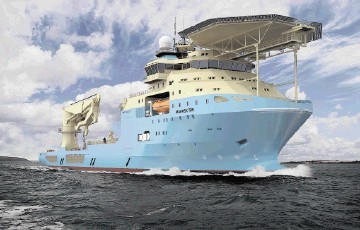
Norwegian boutique shipping and offshore specialist law firm Wikborg Rein warns in a commentary that Chinese yards that grabbed a stack of drilling rig orders prior to the current oil price crash now face terrible times.
During the boom now past, Chinese shipyards ploughed their way into the offshore construction market, especially into the jack-up drilling rig market.
Progressing from building smaller units, a number of Chinese yards are now heavily involved in the construction of larger and more sophisticated jack-ups.
Wikborg Rein notes that, at the start of 2015, sixty jack-ups were scheduled to be delivered from Chinese yards in 2015-2016. This figure represents about 60% of all jack-ups to be delivered in 2015-2016 worldwide.
“To secure such dominance in the market the Chinese yards have provided attractive payment packages to prospective owners, for example, in some cases requiring a small down payment of only 5% at the start of the construction process with the remaining 95% being payable on delivery,” says Wikborg Rein.
“Given that larger jack-ups commanded a price tag of around $230million, such payment terms enabled more buyers to enter the market, many of them on a speculative basis.
“It is estimated that over half of the jack-ups contracted for at Chinese yards were contracted for at a time when the prospective owners did not have the security of a drilling contract – which is typically required in order to secure take-out financing.”
Wikborg Rein reckons this business model worked well for the Chinese yards in the good years but with the falling oil price and the reduction in capital E&P budgets of oil companies, the demand for such rigs has fallen a lot and this is now creating major problems for said yards.
The collapse of the drilling market has led to E&P companies cancelling contracts with drilling contractors who are in turn trying to cancel new-build orders where steel is not yet cut; delay deliveries and so-forth.
“Faced with cancellations by companies against whom often the Chinese yards have limited rights of recourse, the situation that the Chinese yards find themselves in is becoming increasingly desperate,” says Wikborg Rein.
“Where requests for extensions in delivery dates are being made Chinese yards appear to be prepared to accommodate such requests. However, it remains to be seen whether the parties can agree upon further delays beyond the already extended delivery dates should market conditions remain bleak.
“At the same time, the value of the rigs under construction has fallen significantly and where cancellations occur the Chinese yards are left with assets on their hands that are continuing to decrease in value. It is unlikely that the yards will want to operate these rigs and consequently their future remains uncertain.”
